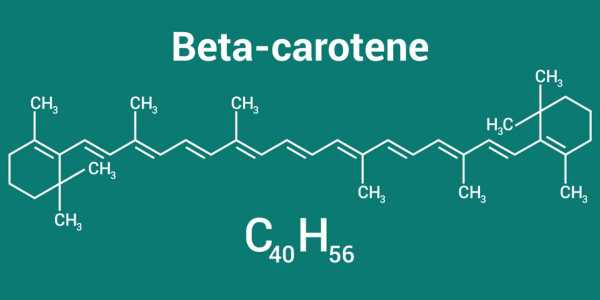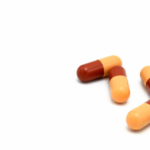The term ‘Beta Carotene’ is derived from the Greek words ‘beta’ and ‘carota’ (carrot). In 1831, H. Wachenroder crystallised beta carotene from carrot roots and coined the term “carotene”.
Beta-carotene (-carotene) is a precursor of vitamin A, which is an important vitamin for cellular health and eyesight for people of all ages. Vitamin A is required for clear skin, healthy mucous membranes, a strong immune system and clear eyesight. According to several studies, people consuming four or more servings of ‘beta carotene-rich’ fruits and/or vegetables a day; have a lower risk of cancer and heart disease. (1)
Benefits of Beta Carotene –
– Keeps lungs healthy as people age
– Improves cognitive function
– Provides protection against diseases that affect the eyes
– Lowers risk for certain kinds of cancer, including lung cancer
– Boosts overall health of the skin
– Helps protect against heart diseases and cognitive disorders like Alzheimer’s disease.
Foods rich in beta carotene
Red, orange, and yellow fruits and vegetables are high in beta carotene. Research shows that cooked carrots have more carotenoids than raw carrots. The bioavailability of carotenoids can also be increased by adding olive oil. As beta carotene is a fat-soluble molecule, it is better absorbed when consumed with fat. (2)
The foods a high beta carotene count include:
- carrots
- apricots
- broccoli
- butternut squash
- broccoli
- peas
- romaine lettuce
- cantaloupe
- red and yellow peppers
- sweet potatoes
- dark leafy greens, such as kale and spinach
Beta carotene is also found in herbs and spices such as:
- chili
- parsley
- cilantro
- marjoram
- sage
- coriander
- paprika
- cayenne
Beta-carotene supplements – Dosage and Administration
Beta-carotene supplements are available in the form of capsules and gels. It should be consumed with meals containing a minimum of 3 grams of fat. (3)
Recommended Dosage and administration:
- For children younger than 14, it is prudent to let a Doctor recommend the exact dosage. The doctor can measure blood levels of beta-carotene already present in the child and prescribe the adequate dosage accordingly.
- For Adults, there is no recommended daily allowance of beta-carotene. Some doctors may prescribe between 10,000 IU per day up to 83,000 IU depending on the severity of the deficiency.
- For adults, 5 or more servings of fruits and vegetables every day is optimal to get about 3 to 6 mg of beta-carotene.
Side Effects
Long-term usage of large dosages of beta-carotene supplements can produce carotenodermia which is yellowing of the skin. According to the National Institutes of Health, large dosages of beta-carotene supplementation may also raise the risk of lung cancer in smokers. (4) Taking a multivitamin with a separate beta-carotene supplement in excessive doses might raise the risk of developing cancer. Other side effects include – loose stools, bruising and joint pain.
Shubham Pharmachem: Providing the best in Supplements and APIs – world wide!
This Mumbai-headquartered company has been a significant player in the pharmaceutical industry for almost three decades now. Its rich portfolio of products, namely Active Pharmaceutical Ingredients (API), herbal extracts, nutraceutical ingredients and cosmetic ingredients, have helped them make their mark not only in India but globally. Continued diversification, in-depth research, and expansion of capacities have been the prime contributors to the organisation’s sustained growth. The broad spectrum of products manufactured and marketed by Shubham Pharmachem ensure competitive pricing, accurate composition, long shelf life, high efficacy and purity.
Disclaimer:
Shubham Pharmachem’s blogs, posts, articles etc. have been written with the information gathered from approved medical journals and websites online. Our research and technical teams strive to provide relevant information for our audience.
We strongly advise readers to not consume or administer any medication without prior consultation with their doctor.
References:
- https://www.mountsinai.org/health-library/supplement/beta-carotene
- https://www.webmd.com/diet/health-benefits-beta-carotene#1
- https://www.fondation-louisbonduelle.org/en/nutrient/beta-carotene-or-provitamin-a/
- https://www.verywellfit.com/the-benefits-of-beta-carotene-88314








